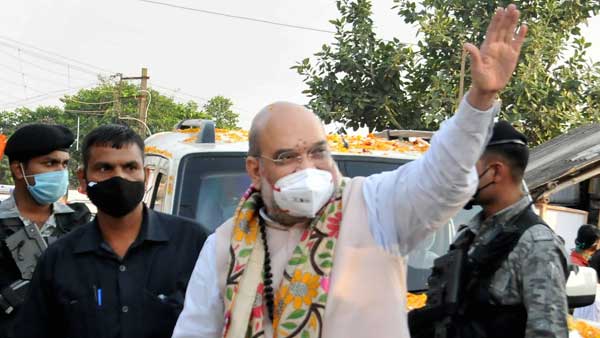MHA sends 3rd summon to 3 Bengal IPS officers; What are the rules of IPS officers' deputation
New Delhi, Dec 18: The Ministry of Home Affairs (MHA) has once again summoned the 3 IPS officers from Bengal to report to the Centre by 5 pm on Friday.

Bengal Chief Minister Mamata Banerjee last week refused to send the state's chief secretary and police chief to New Delhi after Union Home Ministry's summons after the attack on Bharatiya Janata Party chief J P Nadda's convoy in West Bengal's Diamond Harbour on December 10.
Home Ministry has on Thursday sent the 2nd notice to Bengal Govt to relieve three IPS officers after which Banerjee called Centre's order of deputation for serving IPS officers of the state despite the state's objection an exercise of power and blatant misuse of emergency provision of IPS Cadre Rule 1954.
Banerjee said, "this act is nothing but a deliberate attempt to encroach upon State's jurisdiction and demoralize the serving officers in WB. This move, particularly before the elections is against the basic tenets of the federal structure. It's unconstitutional and completely unacceptable!"
The officers concerned - Rajeev Mishra, ADG, South Bengal; Praveen Kumar Tripathi, DIG, Presidency Range; and Bholanath Pandey, SP, Diamond Harbour - were directly in charge of Nadda's security detail at the time of the mob attack. While Nadda had escaped unhurt owing to his car being bulletproof, other BJP leaders like Kailash Vijayvarghiya were injured and their cars damaged.
For IAS, IPS and Indian Forest Service, officers of the state cadre are allotted by the Centre. From time to time, a certain number of officers are sent on central deputation. The Home Ministry is the authority in control of IPS cadre and the Department of Personnel and Training for the IAS cadre.
Rule 7 of the All India Services (Discipline and Appeal) Rules, 1969, states that the "Authority to institute proceedings and to impose penalty" will be the state government if the officer is "serving in connection with the affairs of a State, or is deputed for service under any company, association or body of individuals, whether incorporated or not, which is wholly or substantially owned or controlled by the Government of a State, or in a local authority set up by an Act of the Legislature of that State."
Rule 6(1) of the Indian Police Service (Cadre) Rules, 1954, talks about deputation: "in case of any disagreement, the matter shall be decided by the central Government and the state government or state governments concerned shall give effect to the decision of the Central Government."
For any action to be taken on an officer of the All India Services (IAS, IPS, IFS), the state and the Centre both need to agree.




 Click it and Unblock the Notifications
Click it and Unblock the Notifications

































